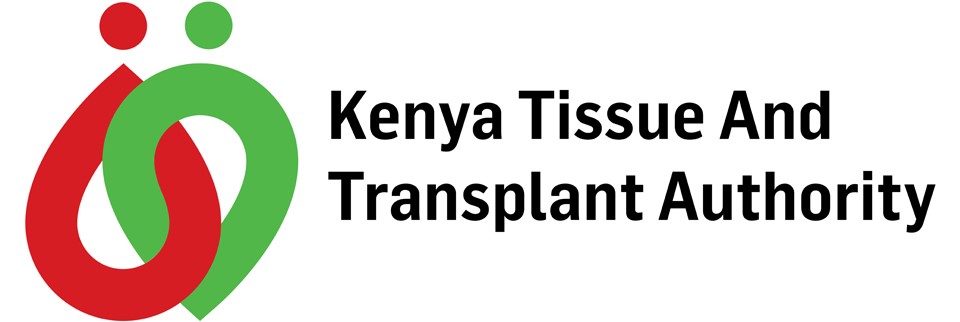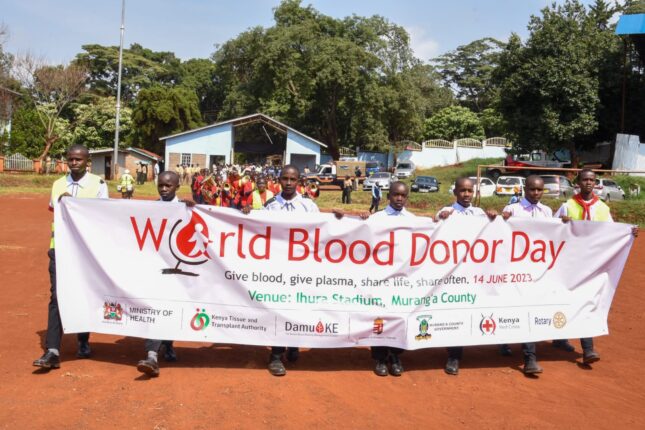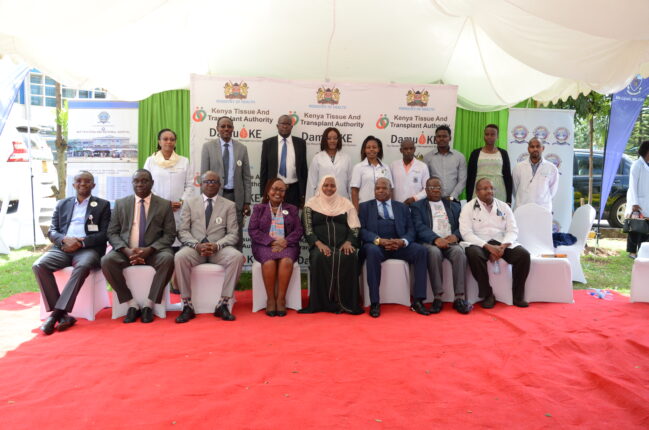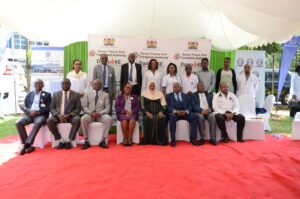Kenya Tissue and Transplant Authority marks Valentine’s Day with a Blood Donation Drive
Kenya Tissue and Transplant Authority marks Valentine’s Day with a blood donation drive
Tuesday, February 14, 2023: To mark this year’s Valentine’s Day, the Kenya Tissue and Transplant Authority organized a national blood donation drive. The formal launch was held at Jomo Kenyatta University of Agriculture and Technology (JKUAT) in Juja, Kiambu County. The Valentine Blood Donation Drive campaign started on Saturday, February 11, 2023 and runs throughout the country until Sunday, February 19, 2023.
Through the blood donation drive, being conducted under the theme “Show your Love, Save a Life,” the Kenya Tissue and Transplant Authority (KTTA) targets to collect 25,000 units of blood which will be processed and stored for future use by patients in various health centers in the country.
Speaking while launching the #ShowYourLoveSaveaLife blood donation campaign at JKUAT, Dr. Maina Mbuthia, while representing the CECM for Health, Kiambu County, said that KTTA, being the successor to the Department of the National Blood Transfusion, Tissue, and Human Organ Transplant Services, is required to ensure the safety, biosafety, and wellbeing of donors and recipients in medical services relating to human-derived medical products through the establishment and maintenance of systems that comply with safety and legal requirements.”
Dr. Mbuthia added: “The authority will be tasked with regulating all services relating to human cells, tissue, and organ transplant in accordance with the Health Act, 2017, register and license facilities and establishments dealing with human cells, tissues, and organs and transplant services, maintain a registry of transplant service providers, donors, and recipients as well as establish an equitable mechanism for matching and allocation of cells, tissue, and organs.”
In addition to mobilizing the public to come forward and donate blood, the week-long campaign is also aimed at increasing public awareness of the importance of donating blood. The blood donation drive targets young adults aged between 18 to 35 years, one of the reasons which informed the decision to pick Kenyatta University as the launch venue because of the student population at the institution.
In her remarks, Dr Rebecca Kiptui, the Ag. CEO at the KTTA, said that KTTA is tasked to oversee, supervise and coordinate the collection and distribution of safe blood and blood products in Kenya, as well as the development of policies, regulations, and guidelines for the availability of safe and equitable tissue, organs, and regenerative medicine therapies.
Dr Kiptui added: KTTA ensures that the country is self-sufficient in safe and quality blood, tissues, and human organs. The Authority’s mission is to ensure that we have safe and quality blood transfusion, tissue, and human organ transplant services through oversight, regulation, and support.
The Drive was organized with partners including Jomo Kenya University of Agriculture and Technology in an effort to increase public awareness and participation in the National Blood donation campaigns during the valentines season.
After the launch in Kiambu at JKUAT, other blood donation activities are scheduled for Embu College in Embu County, Standard Chartered Car Park in Nakuru Town in Nakuru County,
Eldoret Regional Blood Transfusion Centre (RBTC) in Uasin Gishu County, and Jomo Kenyatta Sports Ground in Kisumu Town, Kisumu County.
The crucial role of blood in the country’s healthcare services system can’t be understated. All surgeries in the country require blood availability, without which waiting times for surgeries increase and the health outcomes of Kenyans are compromised.
Worth noting is that blood unavailability leads to increased mortalities. Statistics indicate that 35% (2,700) of 6,500 maternal deaths in 2020 were attributed to bleeding complications while 30% of deaths arising from road traffic accidents (6,938) were a result of bleeding complications in 2020.
Again, chronically ill patients suffering from cancer, kidney, and other organ failures require regular transfusions during chemotherapy, dialysis, or surgery. Access to blood reduces hospitalization periods. With the country’s increased prevalence of chronic diseases, there has been an increased need for blood.
Last year Kenya collected 348,715 pints of blood, 70% of the targeted total of 500,000 pints and the highest collection since independence. This is a 200% increase from the year 2020. KTTA and its other partner organizations aim to collect 1 million pints, the Universal Health Coverage (UHC) target this year.
Ends…//
About Kenya Tissue and Transplant Authority (KTTA):
Kenya Tissue and Transplant Authority, the successor to the Kenya National Blood Transfusion Service, is a parastatal established in August 2022 under the Ministry of Health. It has the mandate to oversee, supervise and coordinate the collection and distribution of safe blood and blood products in Kenya. It also develops relevant policies, regulations, and guidelines for the availability of safe and equitable tissue, organs, and regenerative medicine therapies. The vision of KTTA is to make Kenya self-sufficient in safe and quality blood, tissues, and human organs.







